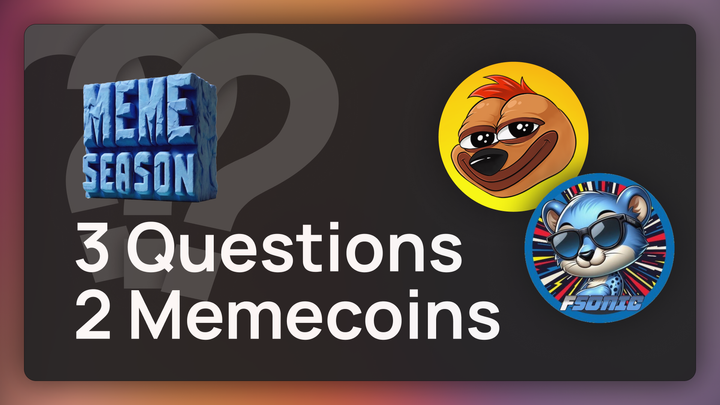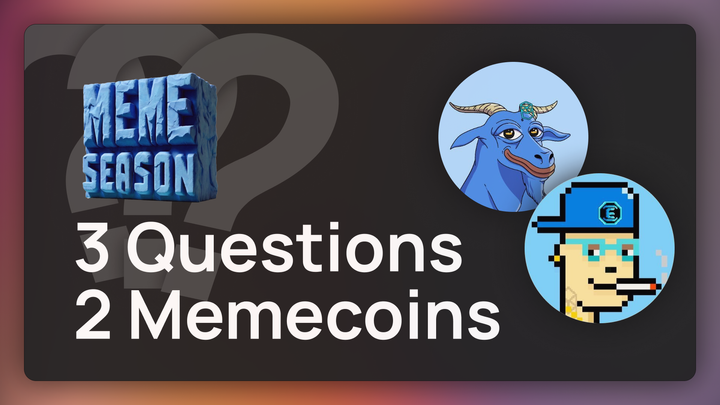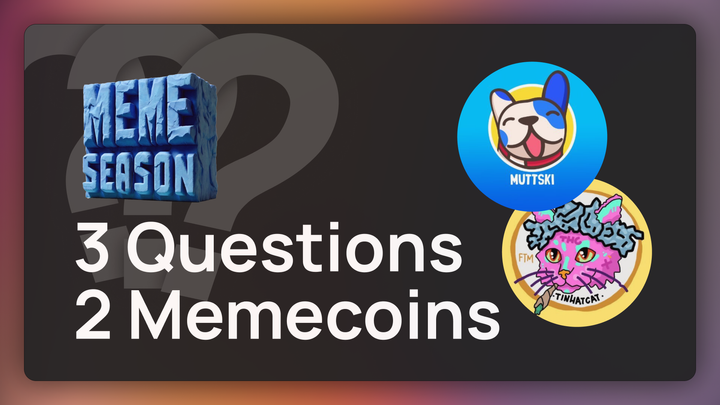yuvi — Fantom Community Spotlight
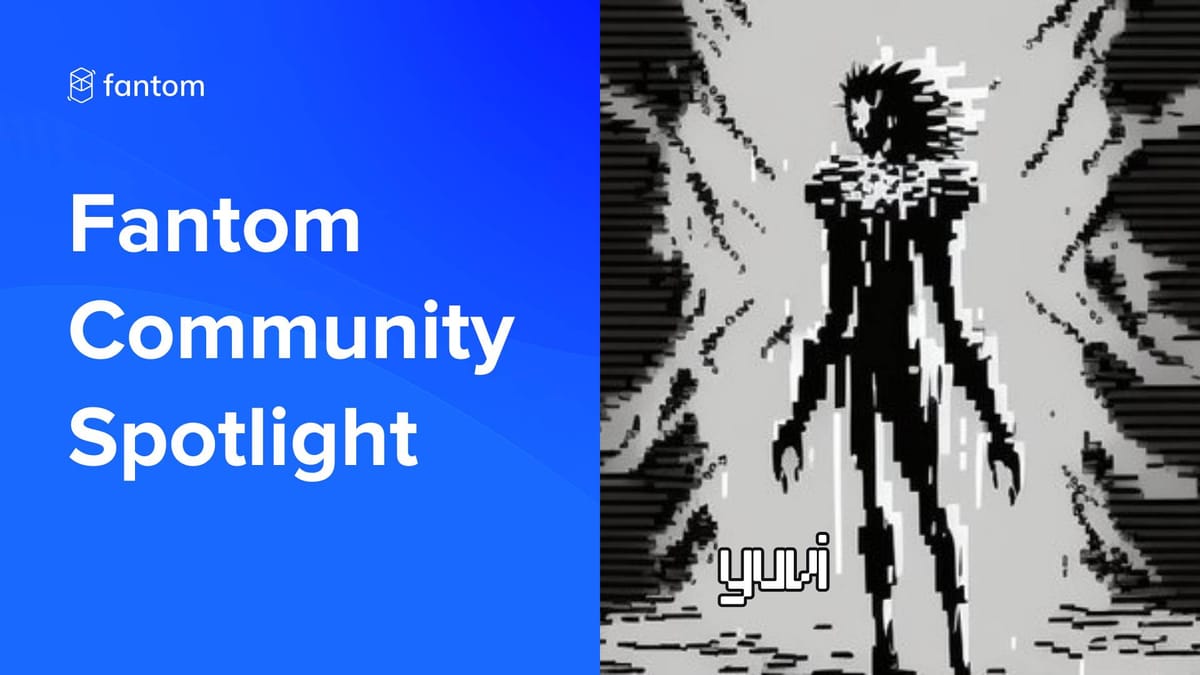
Welcome back to the Fantom Community Spotlight, where we shine a light on the amazing individuals who make up our vibrant community. This time, we’re featuring yuvi!
Read about his thoughts on decentralized governance, his writing to teach readers about DeFi, and his work in other areas.
What’s your background?
I'm a mechanical engineer with an academic background in design optimization and a professional background in defence engineering and risk management.
Initially, my background didn’t seem to help me with crypto; at least I didn’t notice it helping.

But over time I found myself picking up and making sense of crypto concepts faster and more intuitively when I applied those skills.
Once I started asking the right questions and offering additional insight, I started forming strong friendships with like-minded people, which in turn led to shared ideas and better decisions.
And how did you first get into crypto?
I started out a couple of years ago by buying some BTC and BNB on a centralized exchange. I quickly learned about DeFi and have been on-chain ever since. When first starting, I learned a lot about Fantom from Austin’s FTMAlerts videos.
There wasn’t much to the start of my crypto journey; I was overseas for work (during the pandemic no less) and had some expendable income, so I allocated most of it to home gym equipment and some of it to crypto. I don’t discriminate between gains.
What fascinates you about DeFi?
I'm excited about the applications of coded market functions; removing intermediaries and optimizing systems through automation and transparency, and by extension, the implementation of governance that enables trustless, immutable systems to evolve with the needs of society.
The ‘free economy’ as we know it is so heavily controlled by self-serving, centralized entities that the idea of building a financial world that is truly by the people, for the people, and where everyone has access to the same tools and opportunities, is deeply appealing to me.
Did you have an experience that convinced you of DeFi’s potential?
I don’t think that a particular occurrence convinced me. My general interactions with the infrastructure, engineers, and communities convinced me holistically.

Naly is actually the person who convinced me to get more involved in crypto and with crypto protocols. He remains a trusted sounding board for me and I’m forever grateful. I met Naly when I was researching BeethovenX and Balancer tech. It was around the time that he posted his first thread about how he had taken the leap and left his engineering undergraduate degree to pursue full-time work with the Beethoven team.
I think it was also around the time that I started my Modelling DeFi series. Point being, we had a few chats about life and what it meant to work in crypto vs the broader engineering industry. I can’t exactly take the leap the way he did, but I am trying to slowly find work and transition. I’m excited to watch him progress and he’s excited to watch me shift focus. It’s very wholesome.
Over the next 12 months, I hope to transition towards taking on more work and at some point proceed full-time. My current employment precludes it, but I remain excited!
What do you envision as the future of governance within crypto?
This is a very difficult question to answer without delving into philosophies or ranting, but I’ll give it a go.
In the short term, I hope to see designers implement proactive governance frameworks that inherently defend themselves from misuse.

In the long term, I suspect crypto in its entirety will go through iterations of governance applications before a truly robust and viable solution is broadly adopted. I don’t know what that looks like but I enjoy thinking about it.
Code is like DNA. It forms the building blocks of protocols and evolves over time such that only the fittest survive. But it cannot evolve on its own.
In a sense, governance is the RNA that enables the chemical processes that achieve evolution. It’s the mechanism by which external influence dictates the information transfer that is most conducive to survival. No organism can survive without healthy RNA processes.
I’ll leave it at that before I write another essay.
And what about the article you wrote on governance?
I wrote A Decentralized Governance Philosophy at a time when I was becoming more involved in discussions around governance with various protocols. I found that some protocols didn’t really understand the flaws in their governance models before they were already live, and some protocols hadn’t even considered the systemic risks they were introducing.
Throughout my whole career, I’ve been taught to scrutinize my decisions, justify every parameter, and wargame my plans to identify weaknesses. A Decentralized Philosophy wasn’t intended to dictate the solution to governance, because there is none. Every application is different.
My intent was to teach that same critical thinking process of identifying threats and building mitigations into the plan before execution. It’s a process that applies to more than governance, but governance presents an intuitive introduction.
Your Modelling DeFi series is also packed with informative writing, what can readers expect?
Prof. Richard Feynman said, “if you cannot explain something in simple terms, you don't understand it. The best way to learn is to teach”.
My Modelling DeFi series is aimed at those seeking more than just the basics of DeFi. I found that a lot of users and protocols were using terms that I didn’t fully understand, and I wanted to know more about them. It turns out that occasionally they were using terms that they themselves didn’t understand.
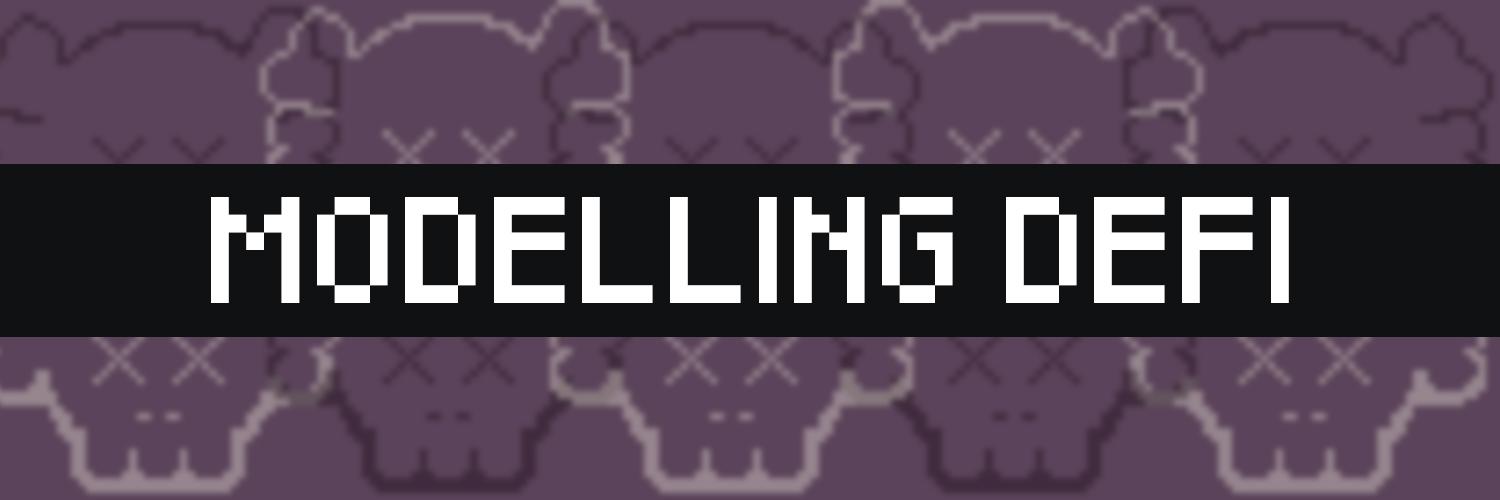
I explored those difficult concepts and explained them in the most simple and constructive way possible, to give everyone an opportunity to synthesize information and make better decisions. I continue to look for concepts and ideas to learn about and explain.
And you’ve released part of this series through Blockbytes, is that correct?
Yes. Before Blockbytes was Blockbytes, the Byte Masons started an education platform called Learn. They published updates about Fantom, a range of protocols, and some more general DeFi beginner content.
I had never published an online article or blog before and wanted somewhere to share my work, so I reached out to the Learn team about contributing content, and of course, they were stoked. I wrote my pieces, and they proofread and published my work.
My contribution progressed to occasionally attending meetings and getting to know the team, all of which I am very grateful for. They are fantastic people and I still enjoy reading their work. Shoutout to Brick Frog.
So what are some examples of the difficult concepts that you explored?
I started with autocompounding. Early on I saw people dismiss autocompounders because they take a fee. I wanted to demonstrate the effects of autocompounding and show, mathematically, if the fee is actually considerable — hot tip: in most autocompounders, the fee is negligible.
Most recently I looked at convexity in both traditional bond markets and DeFi applications. In this case, I saw people referring to and touting convexity, but I didn’t really know what it meant. I spent a few days researching and developing a model to demonstrate its effects, and I now have a deep and intuitive understanding.

My takeaway for readers who also want to self-educate is to look around and identify a concept or idea that you regularly see and ask yourself if you truly understand it (and if you want to). Can you explain it simply to someone else? If not, then take time to research that topic in isolation. Develop and record your deep understanding of it. You only need to learn one topic at a time, easy or hard. That ability to learn will carry over into the next topic.
Is there something that inspired you to share your thoughts by writing?
When I wrote my piece on decentralized governance, I wanted somewhere to publish it so that I could own my content some more. I published it on Substack along with my Modelling DeFi series and found that I enjoyed actually owning the publication where I could write and express my research.
Since then, I have explored broader topics; book reviews, NFT lore, and even advanced AMM models, and I plan to continue to publish pieces of my research that I find interesting.
If you’re looking for Substacks full of alpha and trading tips, then you’ll have to look elsewhere. I have really enjoyed publishing pieces that don’t offer any short-term market edges, for no reason other than to assimilate my own thoughts. I hope that in a way people will find it refreshing on its own merits.
What’s your experience with Fantom?
Fantom is easily my favorite chain. Hands down. Cheapest, fastest, and most fun. I’ve met amazing people and learned amazing things, and for me, it all started on Fantom.
After I realized what DeFi had to offer, I wanted to be involved. I researched a few blockchains and found that Fantom was the fastest, cheapest, and most importantly, I could easily on-ramp and off-ramp through a CEX.

My favorite protocol on Fantom is Reaper Farm and the team behind it, Byte Masons. They have sought my advice on a few developments, and I’ve engaged in fantastic discussions with them.
I’ve learned a lot from them and hopefully have returned the favor.
Who would you recommend to follow on Twitter?
It seems we’ve come full circle regarding interviewees and recommendations since my favorites are hoeem, Naly, and Crypto Linn for DeFi and Fantom. They’re an incredible bunch.
I’m a huge fan of Charlie DeFi, who has recently made some brilliant threads, and with whom I have started discussing ideas. I also recently came across BackTheBunny who makes fantastic content between high-quality shitposting. I am a big advocate for high-quality shitposting.
Thank you to yuvi for featuring in our Community Spotlight! Make sure to drop @crypto_yuvi a follow on Twitter.

